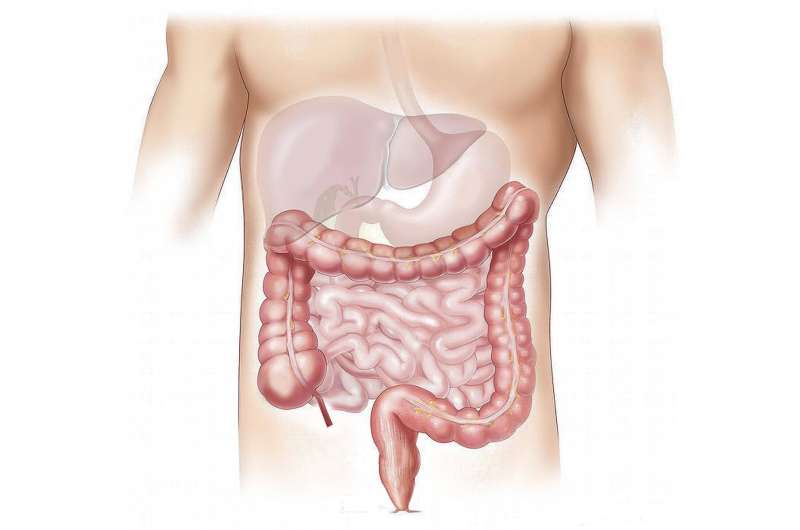This article has been reviewed according to Science X's editorial process and policies. Editors have highlighted the following attributes while ensuring the content's credibility:
fact-checked
peer-reviewed publication
trusted source
proofread
The key to preventing HIV progression may lie in the gut

Restoring and improving gut health may be key to slowing HIV progression to AIDS, according to a new study by University of Pittsburgh infectious diseases scientists published today in the journal JCI Insight.
The animal study, which was performed with simian immunodeficiency virus (SIV), the monkey form of HIV, revealed that tackling only systemic immune activation and inflammation when attempting to control disease progression and comorbidities isn't effective. Instead, treatments should target the root cause of those problems and focus on healing the gut.
"It was a previous study with disappointing results that put us on the path to this latest discovery," said lead author Cristian Apetrei, M.D., Ph.D., professor of infectious diseases at Pitt's School of Medicine and of infectious diseases and microbiology at Pitt's School of Public Health.
"Every study so far targeting systemic inflammation by addressing immune activation has had very short-lived results. Upon reflection, we realized those results told us something very important: Inflammation generated by the virus damaging the intestinal lining is driven by a separate mechanism from immune activation. We just had to prove it."
The hallmark of HIV infection is the hijacking of immune cells called "helper T cells" to make copies of the virus. Scientists have focused on treatments that stop this replication process; however, virus suppression only "calmed" immune activation and inflammation but did not restore them to pre-infection levels.
For a quarter century, scientists have also known that the gut is an immediate target of HIV. Within weeks of infection, the virus depletes the vast majority of immune cells in the intestines that are the depository of immunologic memory and protect the gut against invading pathogens. When these cells are destroyed, the intestinal lining gets damaged, and gut flora enter the bloodstream.
People with the fastest progressing HIV have less healthy gut microbiomes and more intestinal lesions. But past thinking was that calming immune activation and stopping HIV replication was key to controlling disease progression, and that gut health was a sideshow. Turns out it is actually the ringmaster.
When African green monkeys get SIV, the virus doesn't cause the type of gut damage seen in humans and some other nonhuman primates, and they don't naturally progress to chronic infection and AIDS. Apetrei and his team artificially induced persistently high levels of immune activation in the monkeys, but after more than 100 days, they still hadn't progressed to chronic infection, something that would be expected in less than half that time in other species.
"In this study, we've directly demonstrated that intestinal dysfunction is the main determinant of systemic inflammation and disease progression," said senior author Ivona Pandrea, M.D., Ph.D., professor of pathology at Pitt Medicine and of infectious diseases and microbiology at Pitt Public Health. "This points to an urgent need for therapies aimed at preserving gut integrity to avoid accelerated aging, comorbidities and premature death in people living with HIV."
Pandrea and Apetrei—a wife and husband research team—recently focused on two more pathways that may be involved in the SIV-related gut dysfunction: an excessive release of net-like structures called neutrophil extracellular traps, which usually protect against infection, but may damage the gut while capturing viruses and microbes, and alterations in the adenosine pathway, a potent modulator with anti-inflammatory properties that may protect the gut.
"The issue is that we don't know yet all the mechanisms responsible for gut damage in HIV infection," Pandrea said. "We plan to test the role of these pathways in vivo."
The team suggest that their findings should also prompt studies testing whether attempting to heal the guts of people living with HIV through diet, pre- and pro-biotic supplements, and gut microbial transplants slows the progression of the virus. Some of these strategies are being tested in their labs.
More information: Cristian Apetrei et al, T cell activation is insufficient to drive SIV disease progression, JCI Insight (2023). DOI: 10.1172/jci.insight.161111


















